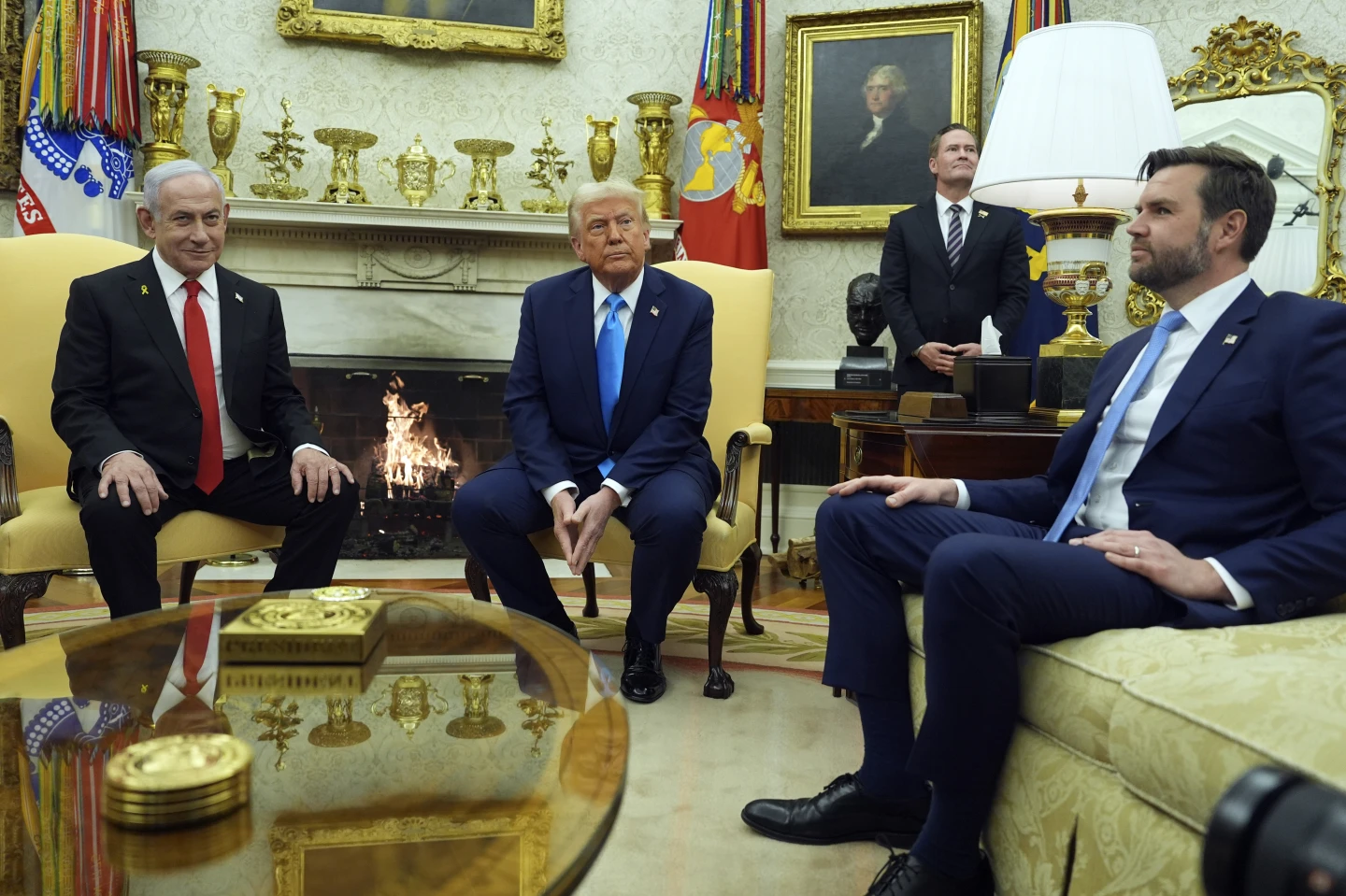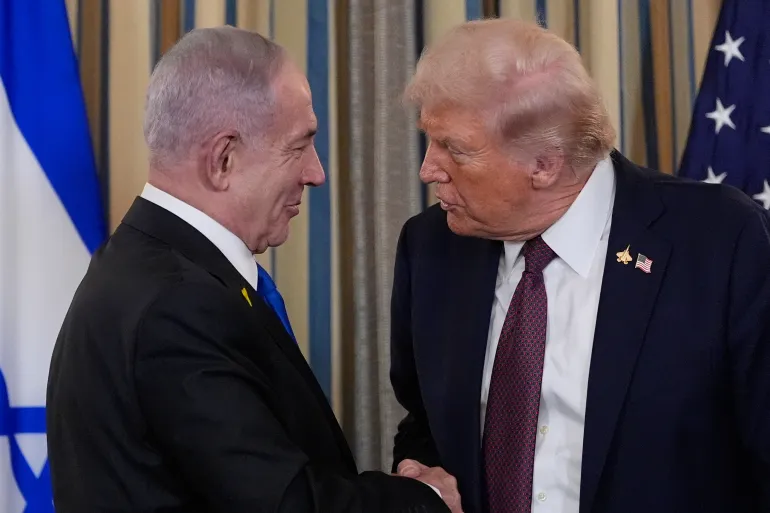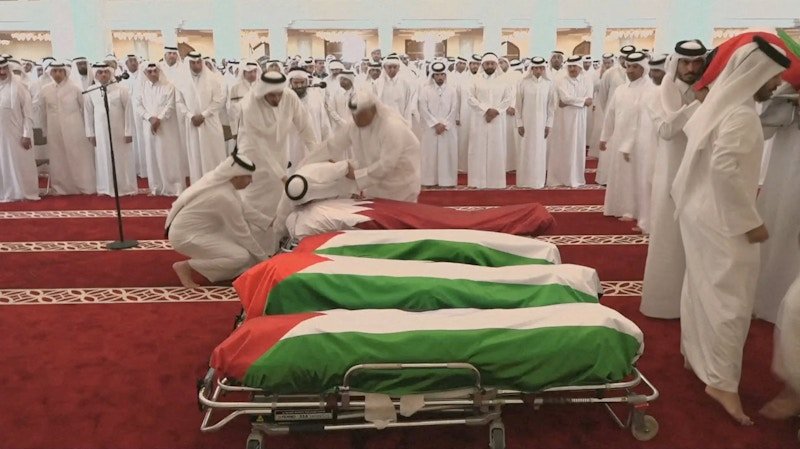President Donald Trump Proposes Safe, Permanent Resettlement for Displaced Palestinians Outside Gaza
In a move that has drawn attention from both international leaders and the global community, President Donald Trump, during a meeting at the White House with Israeli Prime Minister Benjamin Netanyahu, proposed that displaced Palestinians from Gaza be resettled permanently outside the war-torn territory. The proposal highlights the ongoing humanitarian crisis in Gaza and the complications surrounding the region’s future.
President Donald Trump Proposes Safe, Permanent Resettlement for Displaced Palestinians Outside Gaza
Trump Proposes Safe, Permanent Resettlement for Displaced Palestinians Outside Gaza
February 5, 2025 — In a move that has drawn attention from both international leaders and the global community, President Donald Trump, during a meeting at the White House with Israeli Prime Minister Benjamin Netanyahu, proposed that displaced Palestinians from Gaza be resettled permanently outside the war-torn territory. The proposal highlights the ongoing humanitarian crisis in Gaza and the complications surrounding the region’s future.
Speaking to reporters at the start of their meeting, Trump emphasized that living conditions in Gaza are untenable, suggesting that the displaced Palestinians should not return to their homeland due to the ongoing violence and destruction. “I don’t think people should be going back. You can’t live in Gaza right now. I think we need to find another location, a place that will make people happy,” Trump said.
He went on to explain that if a peaceful and secure location could be found for resettlement, it could provide a better future for the Palestinians, free from the constant threat of violence that has plagued Gaza for years. “If we can find a beautiful area, set up housing there where they can be happy, safe from the violence in Gaza, then it would be much better than going back to Gaza,” Trump added.
The proposal came as the two leaders were discussing the fragile ceasefire between Israel and Hamas, as well as the prospects for a deal on hostages and the rebuilding of Gaza, which has been devastated by conflict. Trump’s advisers have expressed concerns over the practicality of a long-term reconstruction plan for Gaza, particularly the proposed three-to-five-year timeline suggested in the temporary truce agreement.
Trump also reiterated his earlier calls for Arab nations to take responsibility for the resettlement of Gaza’s 2.3 million displaced Palestinians. This suggestion has met with resistance, as Egypt, Jordan, and other Arab countries have rejected the idea of resettling Palestinians outside of Gaza. Despite this, senior members of the Trump administration continue to push for relocation on humanitarian grounds, arguing that it is unrealistic to expect Palestinians to return to Gaza in the foreseeable future.
“I think it’s unfair to tell Palestinians they might be back in five years,” said Trump’s Middle East envoy, Steve Witkoff. “That’s just preposterous.”
As the discussion on Gaza’s future continues, Netanyahu’s visit to the U.S. is also focused on broader regional issues, including Iran’s nuclear ambitions and the ongoing conflict with Hamas. Netanyahu is currently facing significant pressure at home due to a high-profile corruption trial, which has affected his popularity. His trip to Washington is seen by many as an opportunity to bolster his political standing while simultaneously engaging with the Trump administration on key Middle Eastern issues.
This visit marks Netanyahu's first international trip since the International Criminal Court (ICC) issued arrest warrants for him and other Israeli officials, accusing them of crimes against humanity during the war in Gaza. The U.S. has not recognized the ICC’s jurisdiction over its citizens or territory, which has allowed Netanyahu to continue his diplomatic engagements, despite the legal challenges he faces.
Trump and Netanyahu are expected to continue their discussions on a range of issues, including the next phase of the ceasefire agreement between Israel and Hamas, as well as the broader geopolitical situation in the Middle East. The future of Gaza, along with the potential for normalization between Israel and Saudi Arabia, will be critical topics of conversation during their meeting. However, it is the question of Palestinian resettlement that is likely to remain a contentious point of discussion between the U.S. and the Arab world.










